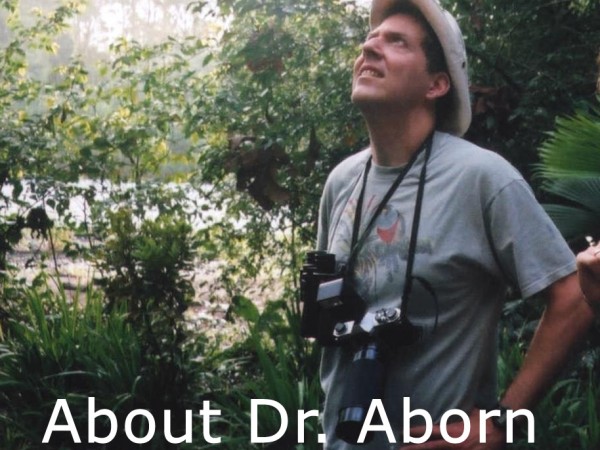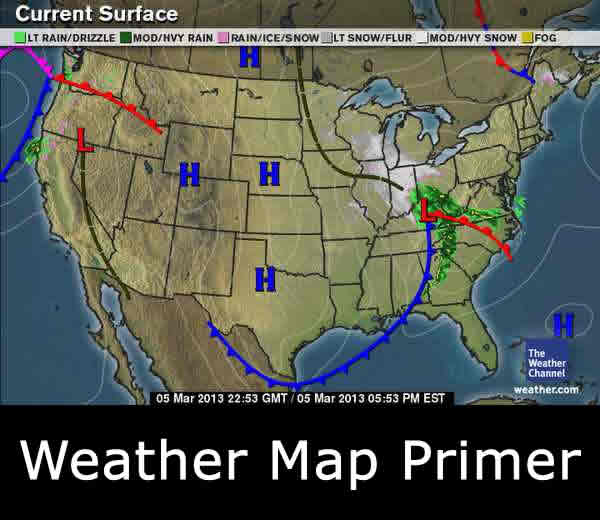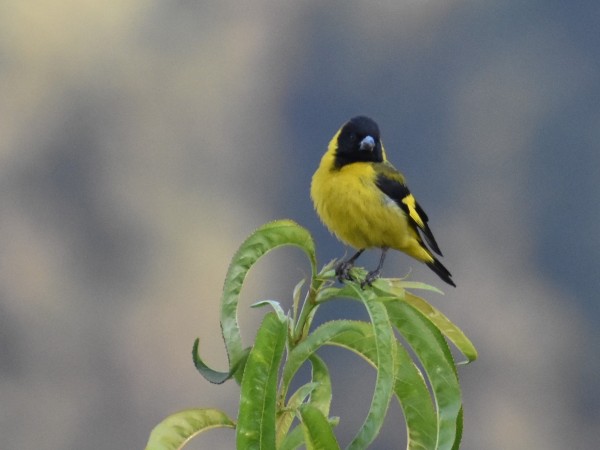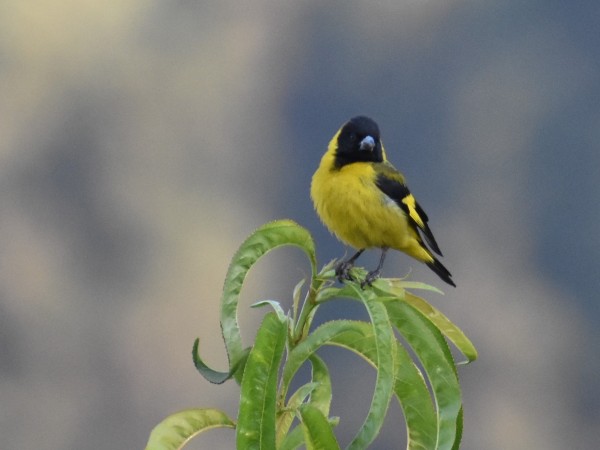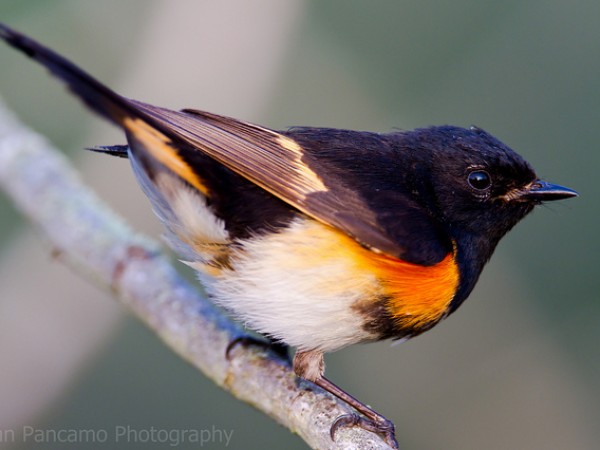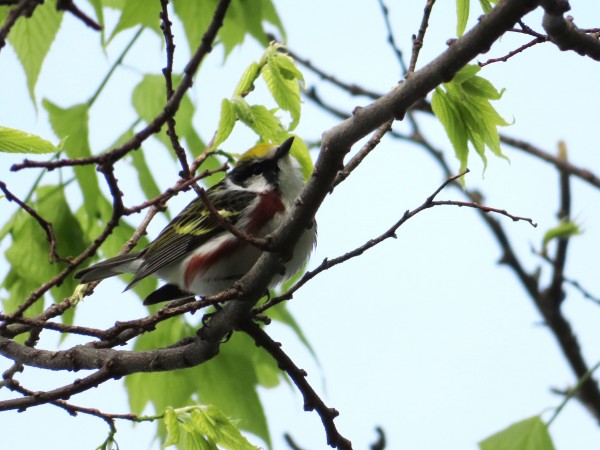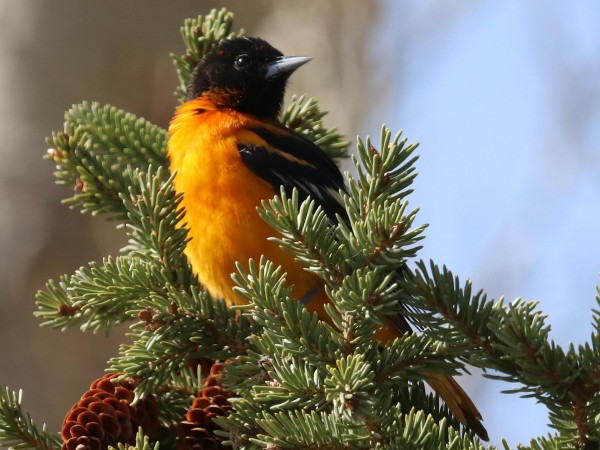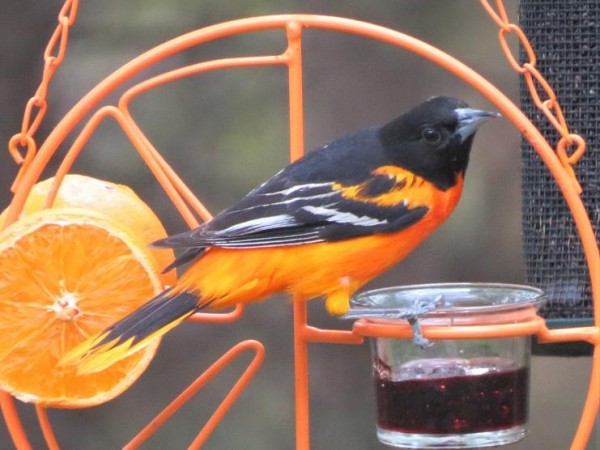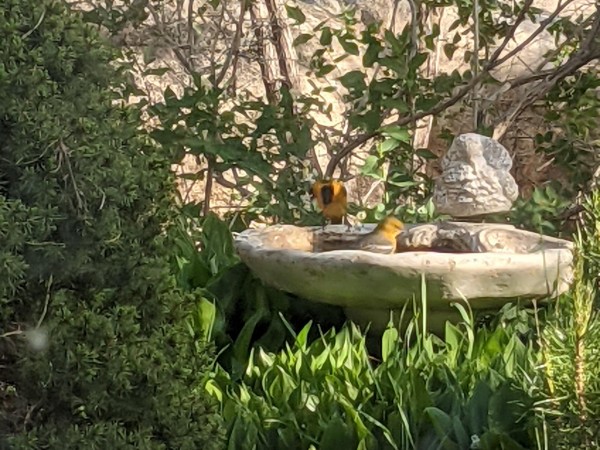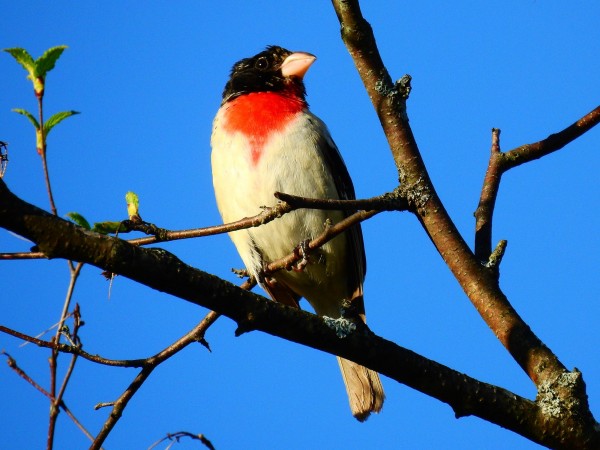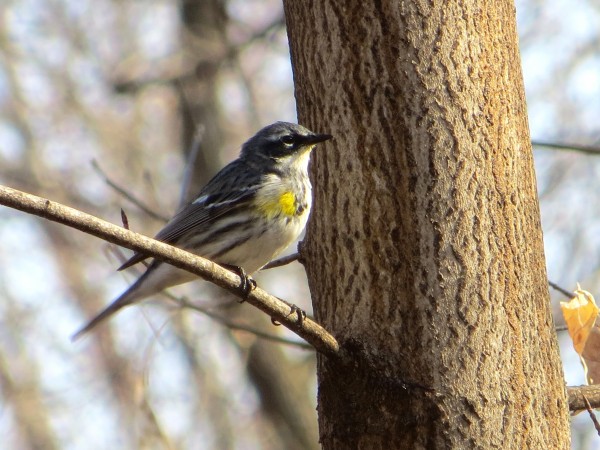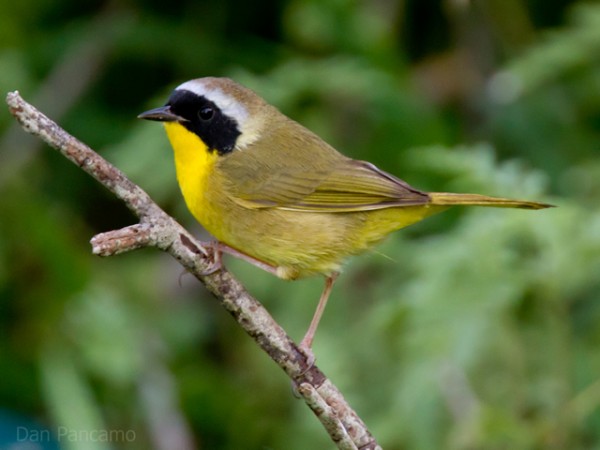Keep Your Binoculars Ready!
Letter from Ana Moreno: Learning About the Birds of Macheros and Cerro Pelón
Cerro Pelon Monarch Butterfly Sanctuary provides critical habitat for monarch butterflies overwintering in Mexico. But it's also an important refuge for birds, including many of the migratory species currently moving through the US and Canada. Ana Moreno, a guide for JM Butterfly B&B and Journey North contributor, was kind enough to detail some of birds found in Cerro Pelon and the village of Macheros. She also highlights a birding workshop that helped participants identify different species of the area.
"During the three days of the course, we were able to spot around 50 different bird species. In the forest we saw the Russet Nightingale-Thrush, Crescent-chested Warbler, Green-striped Brushfinch and a Tufted Flycatcher, among others. In the village, we saw Black-headed Siskins and a Cinnamon-belled Flowerpiercer stealing nectar from the hummingbirds, but without a doubt the species that most caught my attention was the Cedar Waxwing."
Read more of Ana Moreno’s Letter (English Version)»
Leer más de la carta de Ana Moreno (Versión en español)»
Weather Forecasts for Migrating Songbirds
What is a stationary front? And how is it impacting migration. Find out in this week's report from Dr. Aborn.
"If you look at this week’s [weather] map, you will see a line that is both red AND blue; that means it is a stationary front. Sometimes fronts stall. This results in unsettled weather, including waves of rain moving along the front. That means migrating birds south of the stationary front can’t go anywhere . . . Once the front is gone, winds are expected to be southerly through the weekend. There should be a lot of movement into next week."
Read more of Weather Forestcasts for Migrating Songbirds #9»
Chuck Henrikson’s Birding Report
At Journey North’s home base, the UW–Madison Arboretum, Chuck Henrikson shares news of arriving warblers along with Baltimore Orioles and Red-breasted Grosbeaks.
"On today’s walk I picked up four more species of warblers, so exciting! I saw a Chestnut-sided Warbler, a Blue-winged Warbler, a Magnolia Warbler and an Ovenbird . . . Two birds that have become numerous in the Arb are the Rose-breasted Grosbeak and the Baltimore Oriole, especially in the area at HoNeeUm."
Read more of Chuck Henrikson's birding report #60»
Journey North Species
Baltimore Oriole
From Saskatchewan to Maine, Journey North volunteers are documenting the leading migration edge of Baltimore Orioles. Some orioles are already nearing the northern limits of their breeding range.
Roger in Moose Jaw, SK: " [Baltimore Oriole in] Moose Jaw, Saskatchewan, Canada." (05/10/2021)
Tina in Parry Sound, ON: "Beautiful male [Baltimore Oriole] came to my window feeder." (05/10/2021)
Tom in Norway, ME: "Photo is a male [Baltimore Oriole], there was also an immature male on the feeders." (05/10/2021)
Bullock's Oriole
Bullock's are arriving in Nevada and preparing for the breeding season.
Louise in Carson City, NV: "They [Bullock's Orioles] come every year, they are getting ready to nest." (05/02/2021)
Barn Swallow
Barn Swallows have made it as far north as Alaska.
Howard in Girdwood, AK: "Alaska Wildlife Center (Portage ,AK) is the summer home to dozens of these birds. They [Barn Swallows] breed/nest on our property." (04/27/2021)
Common Loon
As spring progresses and ice-out events expand northward, Journey North observers in Canada are welcoming back Common Loons.
Holly in Lakeland No 521, SK: "Heard them [Common Loons] first, then saw them on the lake! One day after ice went out!" (05/09/2021)
Red-Winged Blackbird
Now that many Red-winged Blackbirds have arrived to breeding territories, what are you observing? Any territorial or nesting behavior? Please report your observations to Journey North.


